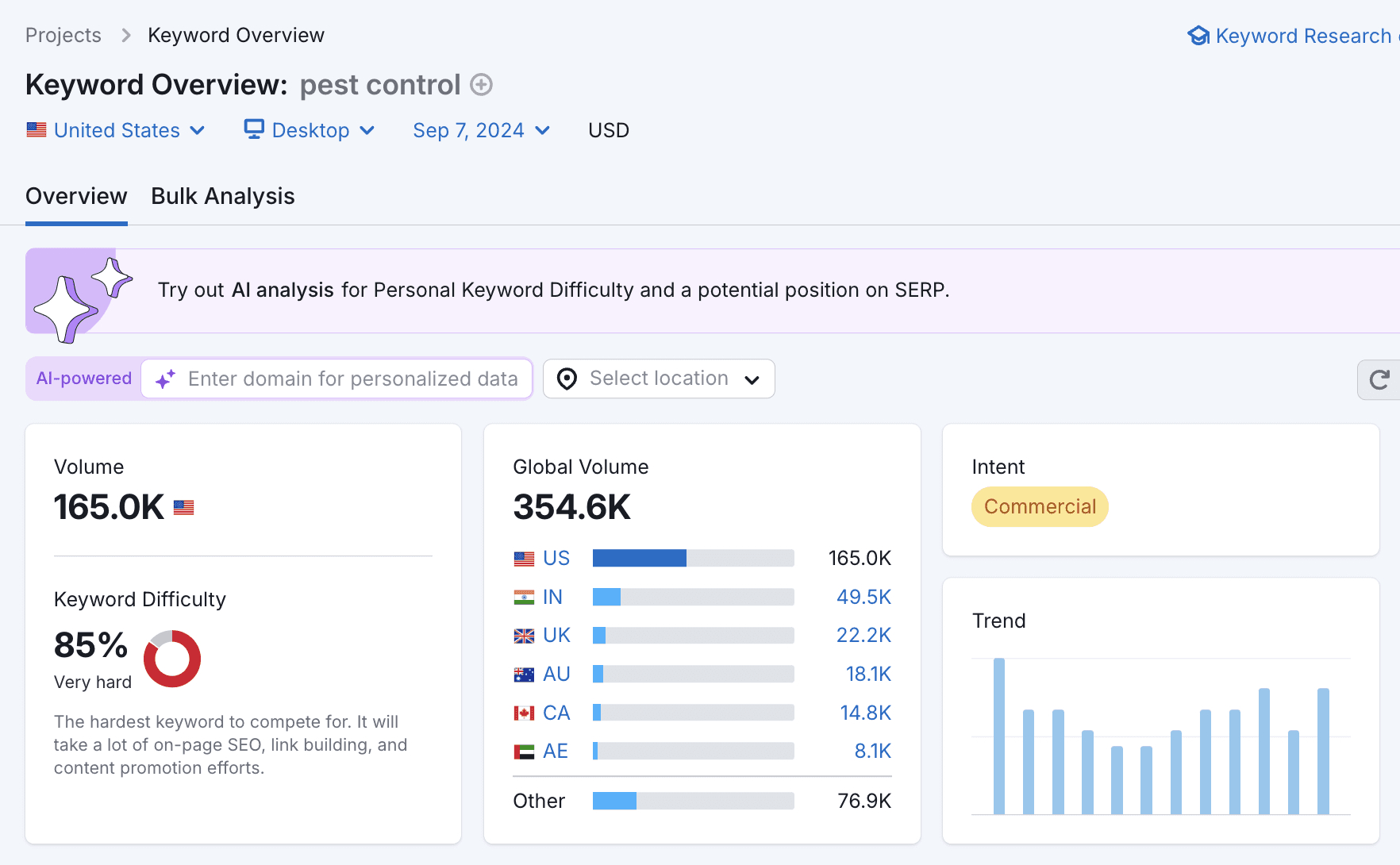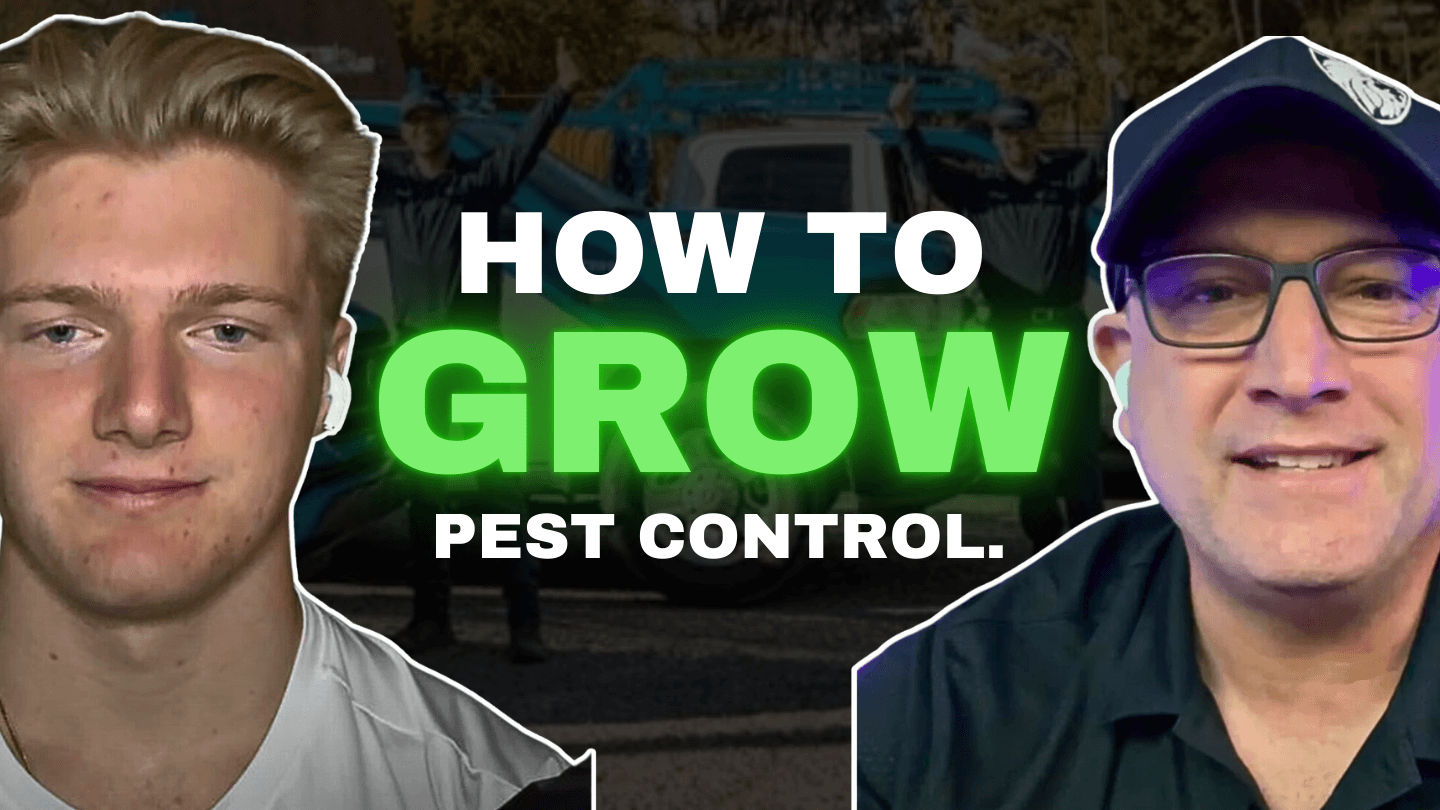Informational
Pest Control Keywords: The Best Keywords For Pest Control
Danny Leibrandt
May 27, 2024
As the founder of Pest Control SEO, I’ve worked with many pest control businesses to help them rank higher on Google and bring in more leads. One of the most important factors in boosting your online presence is using the right keywords. Keywords are what your potential customers type into search engines when they’re looking for pest control services. By targeting the best keywords, you can increase your visibility and get more calls from clients in your area. In this guide, I’ll share the best pest control keywords and how you can use them to improve your SEO.
1. Why Keywords Are Key to Your Success
Keywords are the foundation of search engine optimization (SEO). When people search for pest control services, Google scans your website to find relevant keywords. The better your keyword targeting, the more likely your site is to appear on the first page of search results.
Short-Tail vs. Long-Tail Keywords: Short-tail keywords like “pest control” are highly competitive but can bring in broad traffic. Long-tail keywords like “best termite control in [City]” are more specific and can attract people who are closer to making a purchase decision. I recommend using a mix of both.
2. The Best Pest Control Keywords
Here are some of the most effective keywords I’ve used in my SEO campaigns for pest control companies. They’re grouped by service, location, and customer intent.
General Pest Control Keywords:
Pest control near me
Pest control services
Pest control company in [City]
Affordable pest control
Residential pest control
Pest-Specific Keywords:
Termite treatment near me
How to get rid of bed bugs
Rodent extermination services
Cockroach pest control
Spider control experts
Ant control solutions
Location-Based Keywords:
Pest control in [City]
Exterminator in [City]
Bed bug removal in [City]
Best pest control in [City]
DIY Pest Control Keywords:
How to get rid of ants naturally
Home remedies for termites
Best DIY pest control products
Natural solutions for cockroach infestation
Eco-Friendly Pest Control Keywords:
Green pest control services
Eco-friendly termite treatment
Non-toxic pest control
Organic pest control methods
Emergency and Commercial Pest Control Keywords:
Emergency pest control near me
24-hour exterminator services
Commercial pest control for businesses
Pest control for restaurants
3. How I Find the Right Keywords for My Clients
When working with pest control companies, I always start with in-depth keyword research. This is the most important step in developing an effective SEO strategy. I rely on tools like:
Google Keyword Planner: This is my go-to for finding keyword ideas and getting insights into search volumes.
SEMrush: This tool helps me see what keywords competitors are using and where there are gaps we can fill.
Ahrefs: A great tool for analyzing keyword opportunities and tracking rankings.
Ubersuggest: I like using this to get additional keyword ideas and content suggestions.
4. How to Use Keywords for Maximum Impact
It’s not just about finding keywords—it’s about knowing where to use them. Here’s what I recommend:
On-Page SEO: Make sure your target keywords appear in the title tags, meta descriptions, headings, and throughout the body of your content.
Service-Specific Pages: I always advise my clients to create individual pages for each service. If you offer termite treatment, have a page specifically optimized for "termite treatment" keywords.
Location Pages: If you’re serving multiple cities or neighborhoods, create unique location pages for each area. This helps you rank for local searches.
Content Creation: Regularly publishing blog posts and articles is a great way to target long-tail keywords. For example, you can write an article on “How to Get Rid of Ants in [City]” to attract people searching for pest control advice in that specific location.
5. Tracking and Optimizing Your Keywords
SEO is a long-term strategy, and I always tell my clients that monitoring keyword performance is key. Here’s what I do:
Track Results: Tools like Google Analytics and Google Search Console are essential for tracking how well your keywords are performing. I use these to see which keywords are bringing in traffic and adjust strategies as needed.
Update Content Regularly: The pest control industry changes, and so should your content. I make sure to update service pages and blog posts regularly to include new keywords or reflect changes in search trends.
Seasonal Adjustments: Pests are often seasonal, so I adjust keywords throughout the year. For example, during the summer, you’ll want to focus on keywords related to mosquito control or ant infestations.
6. Don’t Forget Local SEO
For pest control businesses, local SEO is just as important as the keywords you use. Optimizing for location-based keywords is crucial to attracting clients in your area. Here’s what I recommend:
Google Business Profile: Make sure your Google Business Profile is up-to-date and optimized with local keywords. The more accurate your listing is, the better your chances of ranking in local searches.
Local Keywords on Your Website: On your website, be sure to include location-specific keywords like “pest control in [City]” or “bed bug removal in [City]” to improve your visibility in local search results.
Conclusion
Using the right pest control keywords can make a huge difference in your business’s online visibility. By targeting both general and specific keywords, optimizing for local searches, and keeping an eye on your performance, you can increase your chances of getting found by potential customers. At Pest Control SEO, we’ve helped many pest control companies rank higher on Google and bring in more leads, and with the right keyword strategy, your business can do the same.


